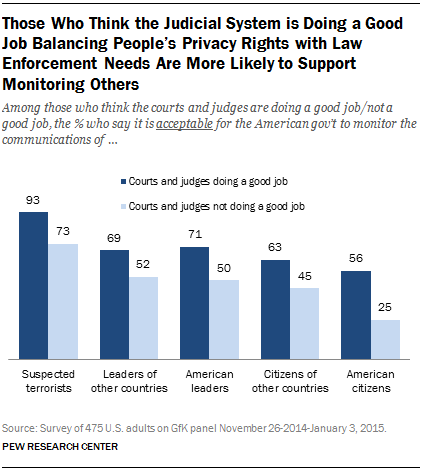Present An Argument, With Research, That The Government Should Actively
According to recent data, the government targeted over 230,000 individuals and organizations for surveillance in 2021. The FBI has the ability to monitor social media without launching an official investigation. Surveillance practices include cameras, wiretaps, GPS tracking, and online monitoring, and while many Americans are aware of these programs, targeted surveillance, which uses technology to spy on specific individuals, remains controversial. However, the government continues to conduct mass surveillance on a large scale, and this technology has been used by authoritarian regimes in the past. In the present day, facial recognition technology is being used by law enforcement to surveil people of color.
Government surveillance of specific groups of people for suspicion of unlawful actions is a complex issue that encompasses ethical, legal, and moral considerations. While addressing this topic, it is essential to discuss this in the context of moral systems.
From a moral perspective, the argument for government surveillance of specific groups for suspicion of unlawful actions is often based on utilitarianism, a moral philosophy that focuses on the greatest good for the greatest number of people. Advocates of surveillance might argue that monitoring certain groups could potentially prevent criminal activities, protect public safety, and safeguard the well-being of the larger society. By actively monitoring individuals or groups with known or suspected ties to criminal or terrorist activities, it is asserted that the government can potentially prevent harm to innocent citizens.
Additionally, proponents of government surveillance could cite the ethical principle of justice, asserting that it is morally justifiable to monitor specific groups when there is credible evidence or reasonable suspicion of intent to commit unlawful actions. They may argue that by targeting these groups, law enforcement agencies can prevent potential harm and uphold fairness by deterring criminal behavior before it occurs.
On the contrary, critics of government surveillance on specific groups often appeal to the moral principle of individual rights and privacy. They argue that surveillance intrudes upon the fundamental rights of individuals and groups, potentially leading to a culture of fear and mistrust within society. The ethical philosophy of deontology, which focuses on the inherent rightness or wrongness of actions independent of their consequences, may support the view that unwarranted surveillance infringes upon the autonomy and dignity of individuals, regardless of any potential collective benefits.
In conclusion, the issue of government surveillance of specific groups for suspicion of unlawful actions is deeply rooted in moral and ethical considerations. While some argue in favor of surveillance based on potential benefits to society, others emphasize the importance of individual rights and privacy. Ultimately, the balance between security and civil liberties remains a contentious topic that necessitates careful evaluation within the framework of ethical principles and legal safeguards.
Sources


Related Questions
Work fast from anywhere
Stay up to date and move work forward with BrutusAI on macOS/iOS/web & android. Download the app today.
